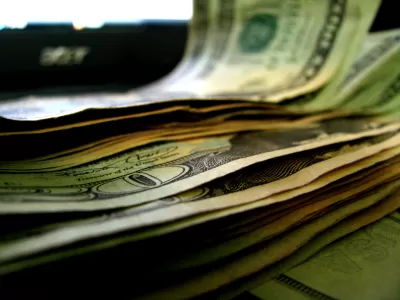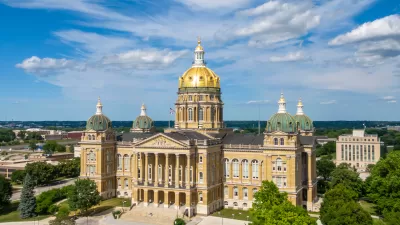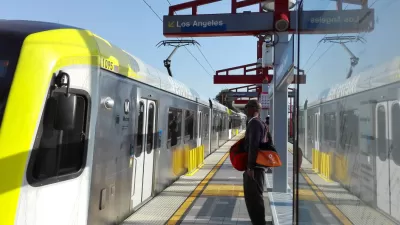Proponents of universal basic income and general income programs say direct cash payments to low-income residents would reduce inequality and alleviate poverty.

[Updated Jan. 14, 2021] With millions of people out of work, policymakers have started looking to Universal Basic Income (UBI) as a way to support working families and prevent more Americans from falling into poverty. In Compton, a new pilot program called the Compton Pledge will provide up to $1,000 per month to qualifying families for two years. If successful, the program could symbolize a powerful new weapon against poverty and inequality. With its means test, Compton Pledge is a "guaranteed income" program, rather than a "universal basic income" program. The latter provides payments to all citizens.
KCRW's Press Play with Madeleine Brand interviewed Compton Mayor Aja Brown about the program. "There's empirical data from other guaranteed income pilots across the nation over the last two years that really underscore that people are making the smart decisions and the best decisions for their family with this additional income,” she said, expressing optimism that the guaranteed income will help families where they need it most.
Compton program recipients will be chosen at random from a list of low-income residents, and the city hopes to expand the program in the future. "Guaranteed income is really about dignity," asserts Mayor Brown, who herself faced poverty as a child. "All people deserve to live a life free of terror from not having the basic necessities."
[Article updated to clarify that the program is a guaranteed income program, rather than a universal basic income.]
FULL STORY: Up to $1000 per month for Compton families: Mayor Aja Brown rolls out guaranteed income program

Alabama: Trump Terminates Settlements for Black Communities Harmed By Raw Sewage
Trump deemed the landmark civil rights agreement “illegal DEI and environmental justice policy.”

Planetizen Federal Action Tracker
A weekly monitor of how Trump’s orders and actions are impacting planners and planning in America.

The 120 Year Old Tiny Home Villages That Sheltered San Francisco’s Earthquake Refugees
More than a century ago, San Francisco mobilized to house thousands of residents displaced by the 1906 earthquake. Could their strategy offer a model for the present?

LA’s Tree Emergency Goes Beyond Vandalism
After a vandal destroyed dozens of downtown LA trees, Mayor Karen Bass vowed to replace them. Days later, she slashed the city’s tree budget.

Sacramento Leads Nation With Bus-Mounted Bike Lane Enforcement Cameras
The city is the first to use its bus-mounted traffic enforcement system to cite drivers who park or drive in bike lanes.

Seattle Voters Approve Social Housing Referendum
Voters approved a corporate tax to fund the city’s housing authority despite an opposition campaign funded by Amazon and Microsoft.
Urban Design for Planners 1: Software Tools
This six-course series explores essential urban design concepts using open source software and equips planners with the tools they need to participate fully in the urban design process.
Planning for Universal Design
Learn the tools for implementing Universal Design in planning regulations.
Ada County Highway District
Clanton & Associates, Inc.
Jessamine County Fiscal Court
Institute for Housing and Urban Development Studies (IHS)
City of Grandview
Harvard GSD Executive Education
Toledo-Lucas County Plan Commissions
Salt Lake City
NYU Wagner Graduate School of Public Service




























